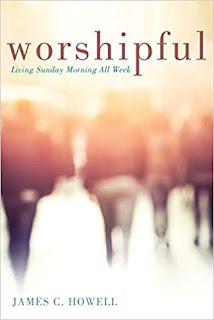Acts 2:1-21. The RCL adds “or Genesis 11:1-9.” It’s both, at least in all ancient people’s minds. My previous year’s post on Pentecost Sunday has my best thoughts and illustrative material, from St. Francis to Gandalf to Julian the Apostate. To those thoughts I would add these, which are fresh and making me rethink things…
We’d best be careful to speak of Pentecost as the “reversal of Babel” – which could imply diversification is a bad thing. God used human guile, pride and overreach to fashion a wonderful tapestry, so Pentecost is less the reversal of Babel but the growing into God’s new way? There is understanding at Pentecost, not sameness. It’s not that everyone suddenly spoke Greek or Aramaic, and certainly not Latin, the language of empire! They kept their own tongues, and stories!
God clearly delights in diversity and understanding – which today doesn’t happen miraculously in an instant. Understanding, getting the hang of language, and cultures and ways, takes time – and is no less a miracle because of it! Willie Jennings speaks of Acts 2 as “the epicenter of the revolution,” “the revolution of the intimate.” God breaks everybody open so they can be a radical new, welcoming, fully engaged community. Notice it was no grand strategy on the disciples’ part. God just did this. It was uncontrollable – like the wind, with immense if unseen power.
Jennings wryly points out that they might
have asked for the Holy Spirit – but not this! This is real grace, “untamed
grace.” He hears an echo of Mary learning the Spirit had “overshadowed her.”
The Spirit transforms not just the ears, but mouths and bodies. God is like
“the lead dancer, taking hold of her partners, drawing them close and saying
Step this way.”
Learning a new language (do you recall
sitting nervously in language class?) is humbling – but so beautiful once you
get the hang of it. You could learn someone else’s language to dominate them,
and history has witnessed plenty of this – or the dominant people declaring “You
must speak our language, not yours!” Learning a language though can be love, to
be fully with others.
Thinking of the spread of the church, not unlike the spread of people after Babel, and those who precursors showed up at Pentecost, I recall Mark Noll’s great wisdom: “Christianity appears more and more as an essentially pluralistic and cross-cultural faith. It appeared first in Asia, then Africa and Europe. Immediately those who turned to Christ in these ‘new’ regions were at home in the faith. When they became believers, Christianity itself became Asian, European and African. Once Christianity is rooted in someplace new, the faith itself also takes on something from that new place. It also challenges, reforms and humanizes the cultural values of that place. The Gospel comes to each person and to all peoples exactly where they are. You do not have to stop being American, Japanese, German, or Terra del Fuegian in order to become a Christian. Instead, they all find rich resources in Christianity that are perfectly fitted for their own cultural situations. It is by its nature a religion of nearly infinite flexibility because it has been revealed in a person of absolutely infinite love.”
Romans
8:14-17 intrigues, although it will at most be background music for
Pentecost. A quirky question I have: “All who are led by the Spirit of God are
children of God” was quoted at me once by a church member grousing that I’d
spoken of non-Christians as God’s children. I’ll hear that – but I then in
reply do want to ask, How many achieve that high bar of Yes, I am so very led by the Spirit? Really?
I’ve written in other posts about Kelly Nikondeha’s marvelous theology of adoption. And we do need to hear Paul in verse 17: “if we suffer with him” doesn’t mean, probably not, if by some remote chance we suffer. Rather, we become his children, close to him, if we suffer as Christ did, or at least some approximation. Not a cross-stitchable passage! – although it was for St. Francis who actually prayed to suffer so he could feel in his soul and body what Christ felt for and with us.
John 14:8-17, 25-27. I want to linger, always, over the simple request, “Show us the Father, and we will be satisfied.” No other satisfaction (Mick Jagger, anyone?) – and the request, “Show us the Father” elicits from Jesus a bit of “This is it, you’ve been seeing it right in front of you all this time.” So lovely, surprising, earthy, simple.
Jesus makes two confusing, questionable
comments next. You guys “will do even greater works” – than Jesus did? The only
parsing of this is to realize the bar is set high – so there isn’t some
honeymoon period of amazing things past and gone once Jesus ascends. And we may
well reflect on what the Body of Christ, Jesus on earth, has done worldwide and
through centuries. Greater, indeed. More embarrassing in many moments too. Yet
that’s God’s way, risking it all, placing the future of Jesus in the hands of
confused fools like us! As we saw at Pentecost, it’s God’s surprising irruption
into things that wins the day anyhow.
And Jesus also say “Ask anything in my name,
I will do it.” When I was fairly new to Christianity, I had friends who
insisted you pray in Jesus name, and they “claimed” the answers if they did so.
This is blatant nonsense. It’s not that God is waiting for us to stick “in
Jesus’ name” on the end of a prayer before doing something. The question is
back at us: are you praying “in Jesus’ name,” that is, are your prayers what
Jesus would pray, in sync with his mission, your heart so close to his as for
you to be almost him praying? It’s not about control, but the yielding of
control. It’s not about prayer working, but us dreaming God’s dreams. As
Jennings said about the Day of Pentecost, they may have asked for the Spirit,
but they certainly did not ask for our “claim” what they actually received!
***
Check out my Worshipful: Living Sunday Morning All Week on all these matters and living spiritually in ways connecting Sunday worship with the rest of life.







No comments:
Post a Comment
Note: Only a member of this blog may post a comment.